From Woodsmoke
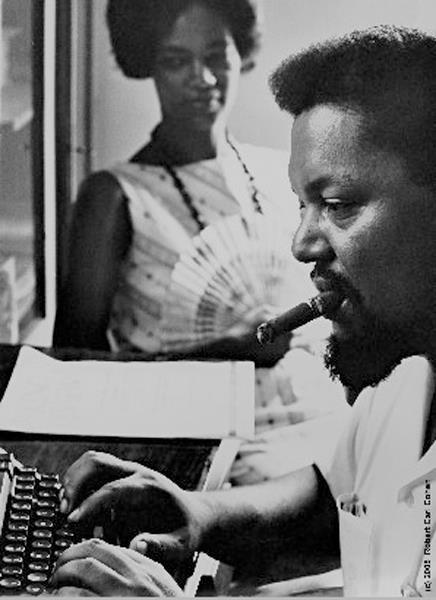
One of the earliest and most important black militant leaders in the modern United States, Robert F. Williams, the civil rights activist and militant revolutionary nationalist moved to China with his wife Mabel at the invitation of Mao Zedong in 1966 at the early stages of the developing Cultural Revolution. The Williams lived in China for three years.
In China, Robert and Mabel visited communes and factories and spoke about the civil rights struggle in the United States. Williams was named international chairman of the Revolutionary Action Movement and elected president-in-exile of the “Republic of New Africa.” In this role, he traveled throughout the developing world building solidarity with the struggles in the USA. During the Vietnam War, the activist-in-exile met with Ho Chi Minh and made radio broadcasts to African-American soldiers against racial oppression in the United States.
Finally in 1969, the Nixon administration, desperate for knowledge of what was going inside China, offered Williams and his wife amnesty in exchange for information. The Williams agreed and returned home that year.
The journey from Monroe to Beijing, via Havana.
Robert Franklin Williams (1925–1996), the grandson of a former slave, was born in 1925 in Monroe, Union County, North Carolina. He was trained as a machinist in the National Youth Administration, and later attended West Virginia State College and Johnson C. Smith University.
In the 1940s, he moved to Detroit to work in the auto factories and it was there he met and married his wife, Mabel. Born in Monroe, NC in 1931, Mabel married Robert in 1947. Mabel Robinson Williams, (1931-2014), along with husband Robert F. Williams (1925 – 1996) led a campaign for self-defence that shaped the 1960s. Robert Franklin Williams work in partnership with Mabel having a profound influence on civil rights activists, sharpening the militancy and resistance to racial oppression. Mabel Williams, who in her writings acknowledged the double oppression faced by black women, was sometimes asked how she felt about working in the shadow of her husband. She discussed her reaction to that question during a speaking engagement that was recorded and posted to Freedom Archives.
“The power structure used that, I think, to split up our movement,” she said. “I feel fine. I’m fighting for my rights just like he’s fighting for his. We’re fighting together for the rights of our people.”
Following a tour of duty in the segregated Marine Corps, Williams returned to Monroe in 1955. In the same year he was elected president of the local chapter of the National Association for the Advancement of Colored People (NAACP). The Williams would remain committed to the struggle for civil rights the rest of their lives. They were leaders of the Monroe, North Carolina chapter of the NAACP during the 1950s until early 1961, very much involved in the struggle for Civil Rights and self-determination in Union County, North Carolina during the 1950s and early 1960s when they were targeted by local authorities and the FBI.
Williams gained national notoriety for forming rifle clubs that met racist violence with armed self-defense. The civil rights organizers became advocates of armed self-defense against racist violence perpetuated by the Ku Klux Klan and law-enforcement personnel in the city. The Williams organized a militant local chapter of the NAACP and an armed self-defense unit called the Black Guard in Monroe, hometown of segregationist U.S. Senator Jesse Helms, whose father served as police chief.
As president of the Union County NAACP, Williams not only revitalized the organization, but also began a non-violent campaign to integrate the county’s public facilities. He gained national attention for the notorious “Kissing Case,” defending two young black boys (ages seven and nine) who were jailed for letting a white girl kiss them on the cheek. Although eventually pardoned the state refused to apologize for its harsh treatment of the boys. The attempts to integrate the public facilities, such as the swimming pool, were largely unsuccessful and often were met by violent resistance.
While organizing with the NAACP, Rob Williams also helped found the Union County Council on Human Relations, bringing the races together to work for black freedom. Mabel Williams served as secretary for the group, which eventually fell apart due to white supremacist backlash.
In 1959, after a jury in Monroe acquitted a white man for the attempted rape of a black woman, Rob Williams stood on the courthouse steps and declared the right of black people to defend themselves. As he said later at a press conference:
“I made a statement that if the law, if the United States Constitution cannot be enforced in this social jungle called Dixie, it is time that Negroes must defend themselves even if it is necessary to resort to violence.
That there is no law here, there is no need to take the white attackers to the courts because they will go free and that the federal government is not coming to the aid of people who are oppressed, and it is time for Negro men to stand up and be men and if it is necessary for us to die we must be willing to die. If it is necessary for us to kill we must be willing to kill.” (Sturgis April 25, 2014)
Repudiating the NAACP policy of passive non-resistance, Williams advocate a stronger means of self-defence. He urged that Afro-Americans arm themselves and meet white supremacists violence with violence. Williams’ stand on this question eventually forced a minor split in the NAACP because many black leaders had become increasingly impatient with passive non-resistance. Williams was temporarily suspended from the NAACP, but many in Union County heeded his advice and did arm themselves. The Black Guard mobilized hundreds of African Americans to defend their community against the racist violence of the Ku Klux Klan and the police.
His stance sparked a debate between himself and King on the efficacy of non-violence.
Following King’s refusal to join the Freedom Rides, Williams wrote in his newsletter The Crusader that many freedom riders were angered by King’s refusal to join the campaign because they, too, had suspended sentences:
“It is pathetic that some of the students are under suspended sentences and some are three and four time losers for freedom, yet they are participating. Maybe, in King’s estimation, they are just students and only stand to lose their lives or careers while he stands to lose a fortune in struggle and blood money” (The Crusader 2, no. 31 [5 June 1961]).
Williams also criticized King for wanting to “ride the great wave of publicity but not the buses” and purported that if King is the “undisputed leader as the white folks claim he is,” he needs to ride the buses or “quit the scene” (The Crusader, 5 June 1961).
Though SNCC representatives pleaded with King to join them on the Freedom Rides, he declined, citing his probation for a May 1960 traffic violation. In this telegram, Williams, who had clashed with King in 1959 over the role of self-defense in the movement, calls King a “phony” for refusing to participate and challenges him to “lead the way by example.”
Telegram from Robert F Williams to Martin Luther King
REV MARTIN LUTHER KING
208 AUBURN AVE NE ATLA
THE CAUSE OF HUMAN DECENCY AND BLACK LIBERATION DEMANDS THAT YOU PHYSICALLY RIDE THE BUSES WITH OUR GALLANT FREEDOM RIDERS. NO SINCERE LEADER ASKS HIS FOLLOWERS TO MAKE SACRIFICES THAT HE HIMSELF WILL NOT ENDURE. YOU ARE A PHONY. GANDHI WAS ALWAYS IN THE FOREFRONT SUFFERING WITH HIS PEOPLE. IF YOU ARE THE LEADER OF THIS NON VIOLENT MOVEMENT LEAD WITH WAY BY EXAMPLE. YOU ARE BETRAYING OUR CAUSE BY ATTEMPTING TO APPEASE OUR ENEMIES RIDE THE BUSES AS THE STUDENTS HAVE ASK YOU TO. IF YOU LACK THE COURAGE, REMOVE YOURSELF FROM THE VANGUARD. I PERSONALLY CHALLENGE YOU TO RIDE FOR FREEDOM. NOW IS THE TIME FOR TRUE LEADERS TO TAKE TO THE FIELD OF BATTLE
ROBERT F WILLIAMS
PRESIDENT UNION COUNTY BRANCH NAACP.

| Robert and Mabel Williams pictured in Cuban exile. |
Needless to say, a militant civil rights leader urging African-Americans to form armed militias throughout Dixie did not sit very well with local politicians or law enforcement. When the Freedom Riders brought their nonviolent campaign to integrate interstate bus travel to Monroe in August1961, they were met by Klan violence and turned to Williams’ Black Guard for protection. On August 26th violence exploded. Williams and others fought back with guns. During the height of the violence, a car containing a white couple inadvertently wandered into the black neighbourhood. Williams sheltered a white couple from an angry African-American mob only to be accused later by local and state authorities of kidnapping them .Rather than risking arrest Williams fled to New York City. With interstate flight from a warrant – a federal crime – the FBI became officially involved. Williams went to Canada and then onto Cuba, with Mabel and their two sons, where Premier Fidel Castro offered him political asylum.
Cuban Exile
The exiled activists made pirate shortwave radio broadcasts to the southern United States as Radio Free Dixie, broadcasting news, music and commentary throughout the eastern United States. They also collaborated on the book “Negroes With Guns”, an important influence on Black Panther Party founder Huey P. Newton.

The Williams continued to publish The Crusader, an underground newsletter they had launched in Monroe and for which Mabel Williams drew editorial cartoons. Frazier observed that in the self-produced newsletter:
“They highlighted the racial injustice experienced by blacks in the South, emphasizing the increasing waves of racialism that were emerging from Southern blacks, and connected these struggles to international movements against imperialism, colonialism and racial oppression.” (Manning :92)
The Crusader was widely read by an emerging generation of revolutionaries who would lead the urban rebellions and form organizations such as the Revolutionary Action Movement (RAM), the Black Panther Party and the Republic of New Africa.
From his Cuban base, Robert Williams reached out to the international community of national liberation activists and progressive expatriates and reached a worldwide leftist audience to seek support for the black liberation struggle in the United States.
Robert F. Williams, the former NAACP leader in Monroe, North Carolina and editor of the Crusader newsletter, stated in a speech on October 10, 1963, that “The same savages who rain death and destruction on the innocent women and children of Cuba, the same savages who rain death and destruction on the helpless women and children of south Viet Nam, the same savages who supply the implements of death and destruction to South Africa and Portugal, are the same who blow off the heads of little black girls in the homes and churches of Birmingham, Free World U.S.A. U.S. racism is a cancerous sore that threatens the well-being of humanity. It can only be removed and a cure effected by a surgical operation performed by the great masses of world.” ( Azikiwe 2016)
Chairman Mao Zedong, after receiving a letter from Robert Williams in 1962, responded by issuing his “Statement Supporting the Afro-American in Their Just struggle Against Racial Discrimination by US Imperialism” just days before the August 1963 March on Washington for jobs and freedom.
Mass rallies were held in China communicating their solidarity with their black brothers, and the Williams were invited to China’s 14th anniversary National day celebrations in Beijing.
Back in Havana there were deteriorating personal relations with the Cuban authorities because, Frazier explains, of the Williams criticism of anti-black racism in Cuba and their political sympathy of black nationalism; this position saw some Cuban officials refer to them as “black racists”. (Manning :24)
NEW ADDRESS:
Robert F. Williams, 9 Tai Chi Chang, Peking, China.
In 1965, the Williams family moved to The People’s Republic of China at the invitation of Mao Zedong. They were treated like unofficial cultural diplomats and guests of the state.
In Beijing, The Crusader printing increased from 15,000 copies in Havana to 30,000 in Beijing. The Crusader’s original masthead of a sword-wielding Crusader, printed and distributed from Cuba, was replaced in the October 1966 edition, after Williams left Cuba for China, by a machine gun & flaming torch.
Their radio show was broadcast periodically to African countries, and China’s short wave radio output aimed at black Americans was increased. A documentary of their extended tour of China in 1964 was made, Robert Williams in China. There was attendance at seminars like that held to honour William Edward Burghardt “W. E. B.” Du Bois (1868-1963) a leading African-American sociologist, writer and veteran civil rights activist.

DuBois on his third visit to China was greeted by Mao Tse-tung in early 1959.
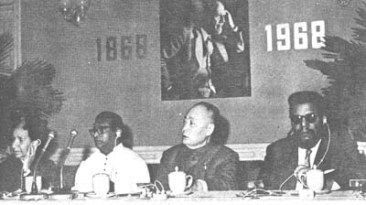
Above: Celebrating the 100th birthday of Dr. W.E.B. DuBois in Peking. Left to right: Shirley Graham DuBois, editor of Freedomways; R.D. Senanayake, Secretary General of Afro-Asian Writers’ Bureau; Chen Yi, Foreign Minister of People’s China; and Robert F. Williams.
At a 91st birthday commemoration in China DuBois made a speech at a state-sponsored banquet which was broadcast through the national media. DuBois was quoted as saying that “Come to China, Africa, and look around. You know America and France and Britain to your sorrow. Now know the Soviet Union and its allied nations, but particularly know China. China is flesh of your flesh and blood of your blood. China is colored, and knows to what the colored skin in this modern world subjects its owner. In my own country for nearly a century I have been nothing but a nigger.” (“Du Bois, 91, Lauds China,” New York Times, March 5, 1959)
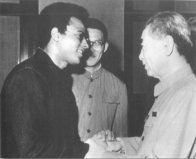
On China’s National Day celebration on Oct 1, 1966, Robert Williams, another civil rights leader and a revolutionary, was invited to speak at Tiananmen Rostrum, with Mao standing at his side. In 1971, then Chinese Premier Zhou Enlai met in Beijing with Huey Newton, leader of the Black Panther Party.
“This is the era of Mao Zedong, the era of world revolution and the Afro-American’s struggle for liberation is a part of an invincible world-wide movement. Chairman Mao was the first world leader to elevate our people’s struggle to the fold of the world revolution,” Williams said in 1967, as quoted in the article Black Like Mao: Red China and Black Revolution. In the article, the authors described how Mao’s theory inspired African-American leaders in the 1960s and ’70s, resulting in the many Maoist organizations.

Chairman Mao Zedong signs U.S. civil rights leader Robert F. Williams’ copy of the ‘Little Red Book’ at the National Day celebrations, October 1, 1966.
In a speech given at a demonstration in Peking on Aug. 8, 1966, Robert Williams asked, and answered,
“What is the meaning of this cry BLACK POWER in a land dominated by the unmerciful power of white intruders who murdered and all but exterminated the rightful owners, the American Indians? Black Power means that black men want to have some control over their own lives, to have a respected voice in public affairs that affect them. We resent being a colonial people, treated as third class citizens in our native land. We resent being forbidden to speak for ourselves, even in black belts where we constitute as much as 85 percent of the population. We resent being deformed by a white man’s mould in a degenerate white supremacy society that derides and belittles our African heritage and make us ashamed of our ethnic characteristics. Black Power is the vehicle by which we hope to reach a stage wherein we can be proud black people without the necessity of an apology for our non-Anglo-Saxon features. The dominant society in racist America is reactionary, imperialist, racist, and decadent and we wish to disassociate ourselves from it. Black Power is a dissident force challenging the racist white power structure that is so heinously exterminating the people of Vietnam and threatening the world with nuclear destruction.” (Peking Review, Volume 9, #33, Aug. 12, 1966, pp. 24-27)
While in exile Robert Williams became the international chairman in exile of the Revolutionary Action Movement (RAM) The Revolutionary Action Movement (RAM) was the first independent Black revolutionary Marxist organization of the 1960s. Organized in 1962 by Muhammad Ahmad (Max Stanford), a close associate of Malcolm X and Queen Mother Audley Moore, RAM was a national semi-clandestine organization which articulated a revolutionary program for African Americans that fused Black nationalism with Marxism-Leninism.
Although it was not a large organization, RAM influenced a wide range of groups, including the Student Non-Violent Coordinating Committee (SNCC), the Black Panther Party, the League of Revolutionary Black Workers, and the Black Workers Congress. RAM dissolved in 1969. As Max Elbaum notes, “RAM’s significance had not resided in its organizational strength, but in its popularization of revolutionary nationalist, Marxist and Maoist ideas during a critical period of the Black freedom movement.” (Revolution in the Air :65)
Williams also served as a president-in-exile for the Black separatist organisation Republic of New Africa (RNA) that advocated the creation of an independent African-American-majority country situated in the south-eastern United States, in the heart of black-majority population. A position similar to that argued in the 1930s Comintern and the Black Belt nation position that found favour among some organisations in polemics on the Afro-American National Question and Racism in the Maoist-inclined New Communist Movement in the 1970s.
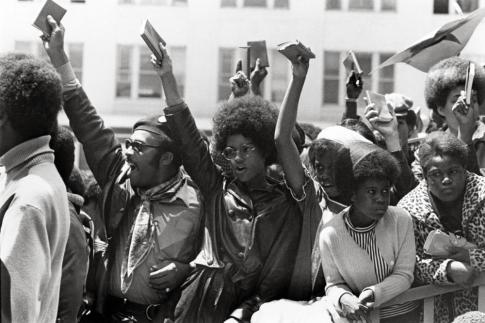
Mao’s “Statement in Support of the Afro-American Struggle Against Violence” was both a condemnation of Martin Luther King Jr.’s murder and racial oppression in the US, and an insistence that:
“The Black masses and the masses of white working people in the United States have common interests and common objectives to struggle for. Therefore, the Afro-American struggle is winning sympathy and support from increasing numbers of white working people and progressives’ in the United States. The struggle of the Black people in the United States is bound to merge with the American workers’ movement, and this will eventually end the criminal rule of the U.S. monopoly capitalist class.” This position was at odds with a Black separatist perspective as the Chairman’s orthodox perspective was that “The Black masses and the masses of white working people in the United States have common interests and common objectives to struggle for. Therefore, the Afro-American struggle is winning sympathy and support from increasing numbers of white working people and progressives in the United States. The struggle of the Black people in the United States is bound to merge with the American workers’ movement, and this will eventually end the criminal rule of the U.S. monopoly capitalist class.”
Robert Williams travelled to Dar es Salaam, Tanzania in May 1968. Here he met with representatives from southern African liberation movements that had established logistic bases in the country. In a visit to North Vietnam, where he met Ho Chi Minh and broadcast anti-war propaganda to black soldiers in South Vietnam.
He authored a pamphlet titled Listen, Brother! (1968), which deemed the war in Vietnam “a Honky trick worked up against the other oppressed colored people”. Filled with scenes of total devastation of “colored humanity” where bodies burned with napalm, Listen, Brother! urged African American soldiers to realize that participation in the war made them part of a “big mob of savage klansmen who maim and kill in the name of Christian democracy”. Critiquing the dominant cold war ideology of a bipolar power struggle as well as a perceived crisis in representative democracy, Williams hoped to turn cold war violence back against itself. He saw the war in Vietnam as a model for minority revolution in the US, where “black saboteurs” and “guerrilla enclaves” were a second front in the war for a lasting world black revolution. While he was criticized for advocating unpredictable revolutionary violence, Williams was also profoundly affected by the Cultural Revolution in China and turned increasingly to art and culture as a means to sustain the coming revolution. In Chinese propaganda, Williams found a model in which he could imagine the African American man and woman of his future nation, the Republic of New Africa.
Back to the USA
Mabel Williams and sons John and Bobby, returned to the United States in August 1969 and settled in Lake County Michigan.
Robert Williams followed soon after and was arrested on the outstanding kidnapping charge at Detroit Metropolitan Airport:
“Wearing a blue Chinese suit similar to that worn by Mao, Robert walked down the tarmac, clenched fist raised high in the Black Power salute. He was immediately taken into custody by the FBI and released on a personal recognizance bond of ten thousand dollars.” (Manning : 97)
In 1975 efforts to extradite him to North Carolina to stand trial on the1961 bogus kidnapping charges was resisted and despite a large campaign to stop Williams’ extradition, Governor William Milliken of Michigan extradited him. Following his acquittal, Williams returned to Baldwin.
In 1970-71 Rob Williams had taken a research position at the University of Michigan’s Institute for Chinese Studies. Drawing from his extensive stay in China, Williams was questioned by Allen Whiting who in turn advised Henry Kissinger shortly before Kissinger’s first trip to China in the opening of diplomatic relations between the U.S. and China.
For the next twenty years, Robert F. Williams wrote books and articles about his experiences and continued his work as a civil rights activist. He spoke at the Chicago memorial meeting for Mao Zedong in 1976, “Chairman Mao was our brother” .In the 1980s and 1990s, Williams remained active in community affairs in Baldwin and took up the cause of Clyde Cleveland, a prisoner on death row in North Carolina. When he died in 1996, hundreds of people attended services in Detroit and New York. Civil rights leader Rosa Parks delivered his eulogy, hailing “his courage and for his commitment to freedom.” An Obituary in The New York Times said:
Mr. Williams was a ”revolutionary black nationalist” but was never a Communist, even though he sympathized with some of Communism’s goals, said his son John.
During their time in Lake County they had engaged in community activism and Mabel continued to work tirelessly until her death on April 19, 2014. She was 82.
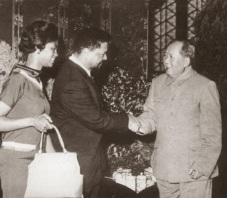
In an obituary distributed at Mabel Williams’ memorial, it described, in part, their partnership and goals: The funeral service for Mrs. Williams was held April 25 2014.
“Mabel and Robert worked tirelessly together as one, in their contribution to the struggle to uplift black people and marginalized humanity. It is impossible to speak of Rob Williams accomplishments and exploits in the civil and human rights struggle without simultaneously discussing the significant role this warrior woman played by his side, at his back, out in front, and behind closed doors as she followed Rob all around the world advocating and sounding the alarm for our people.” Azikiwe (April 29, 2014)
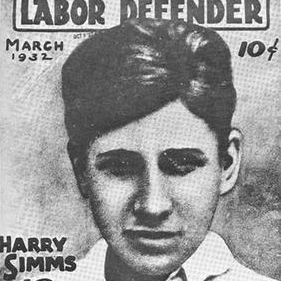

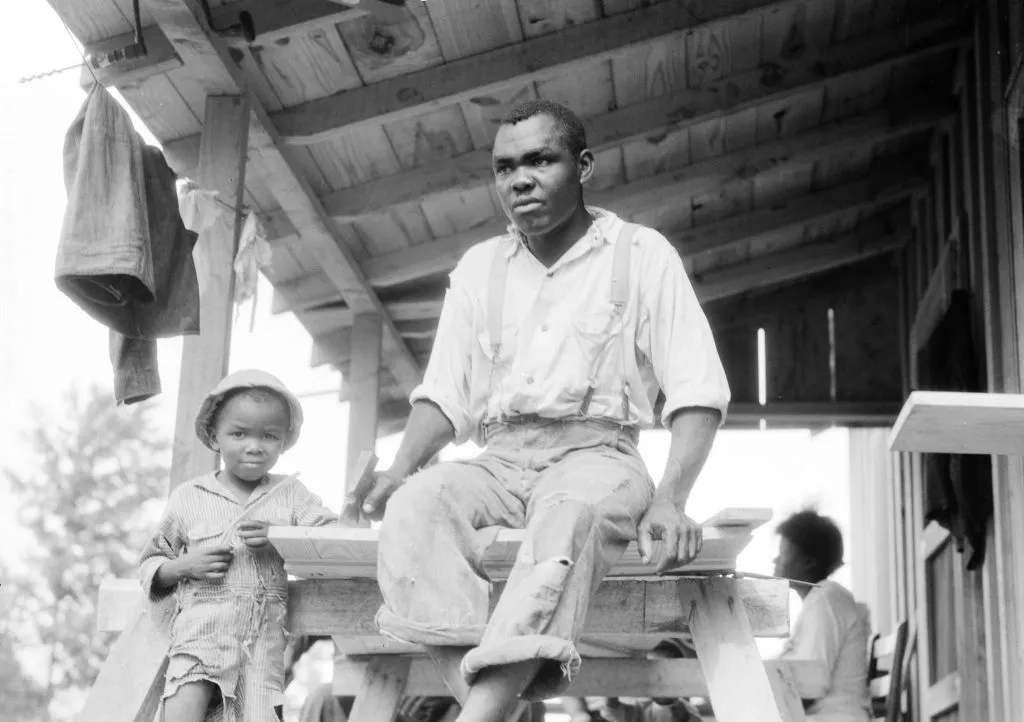
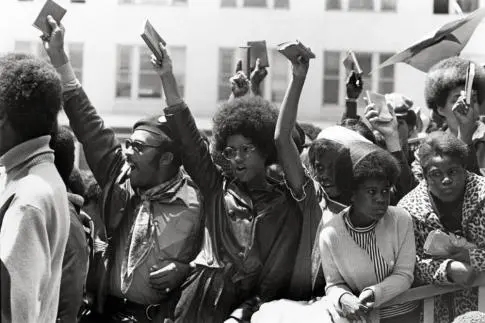
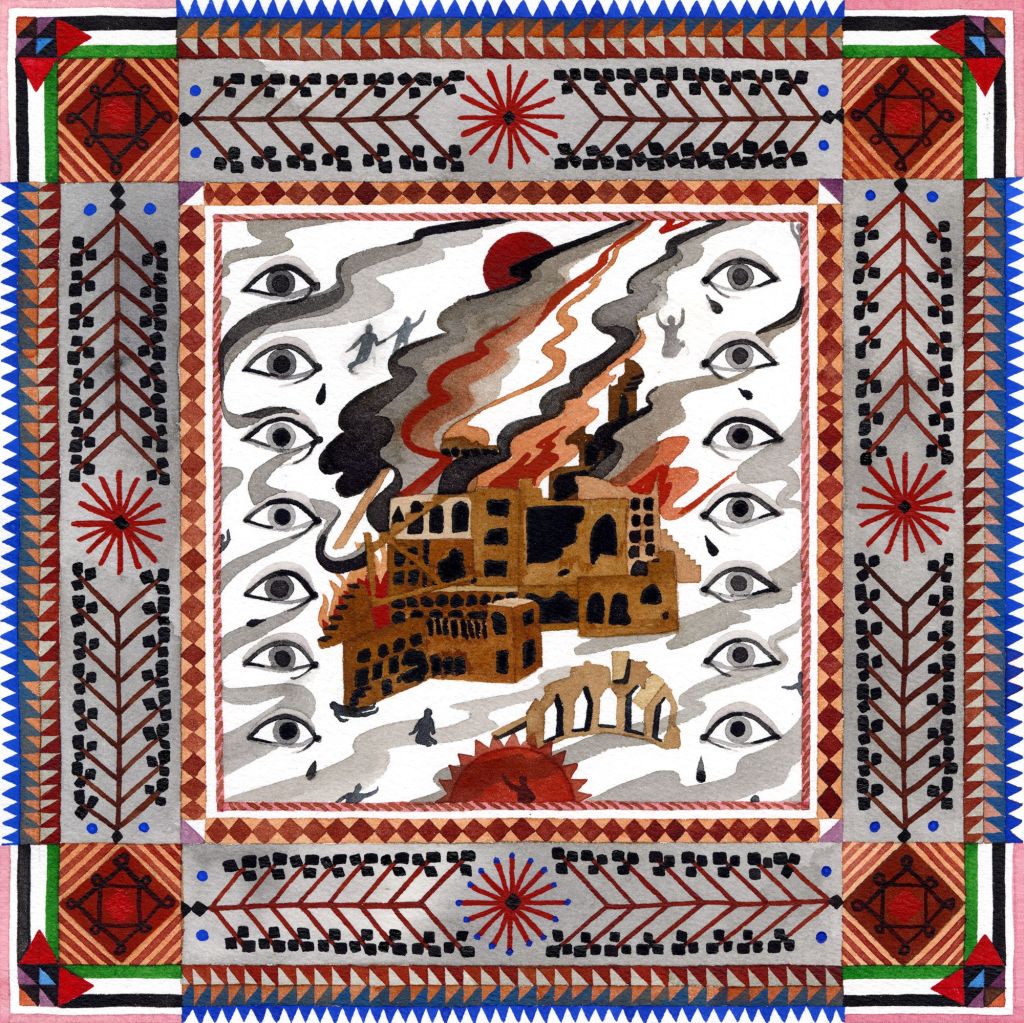
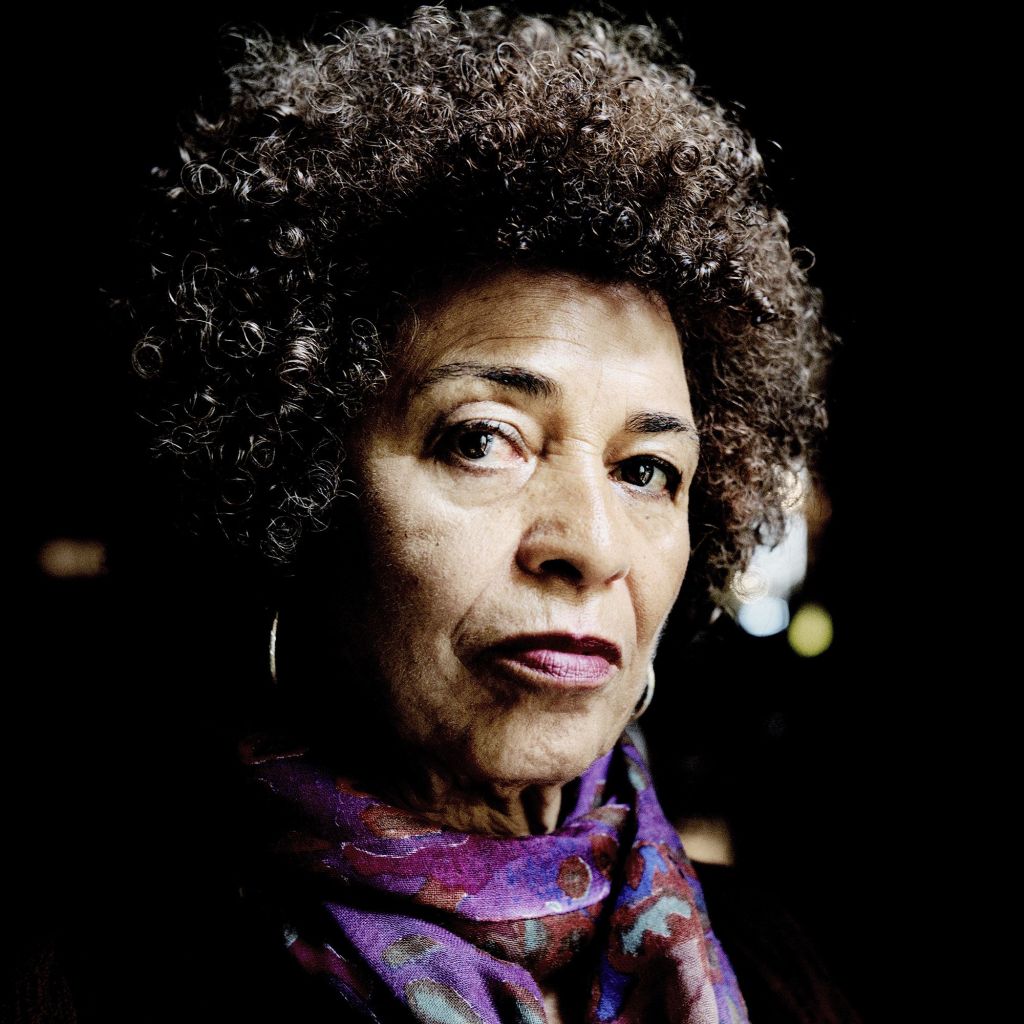
Leave a comment